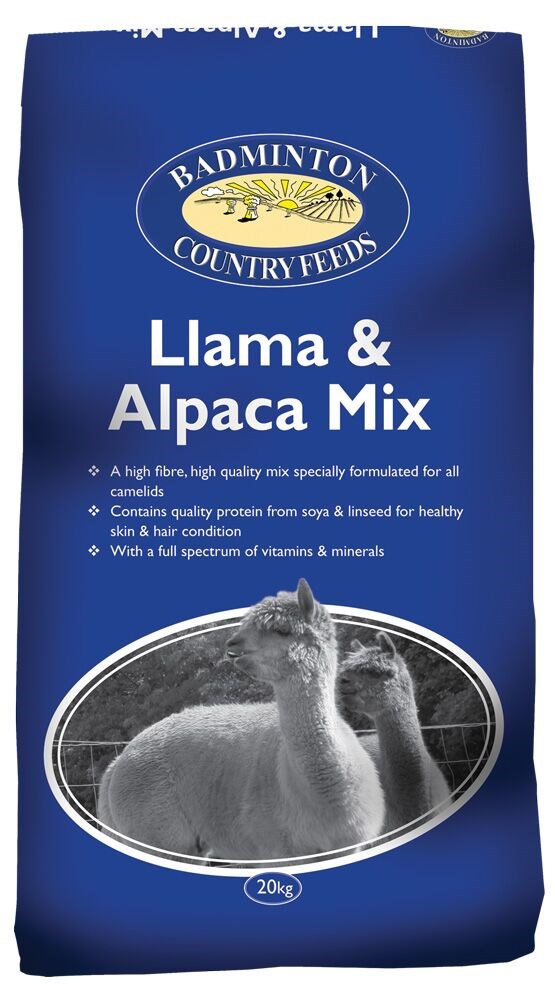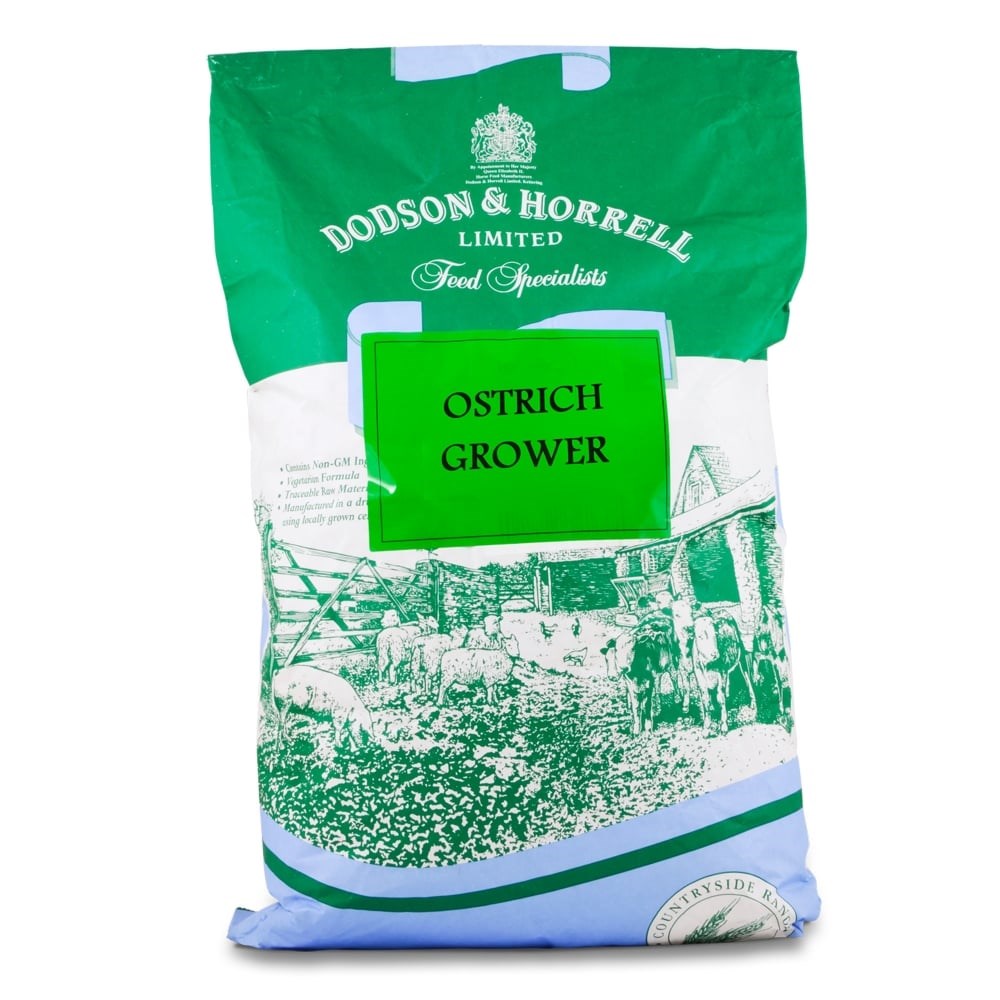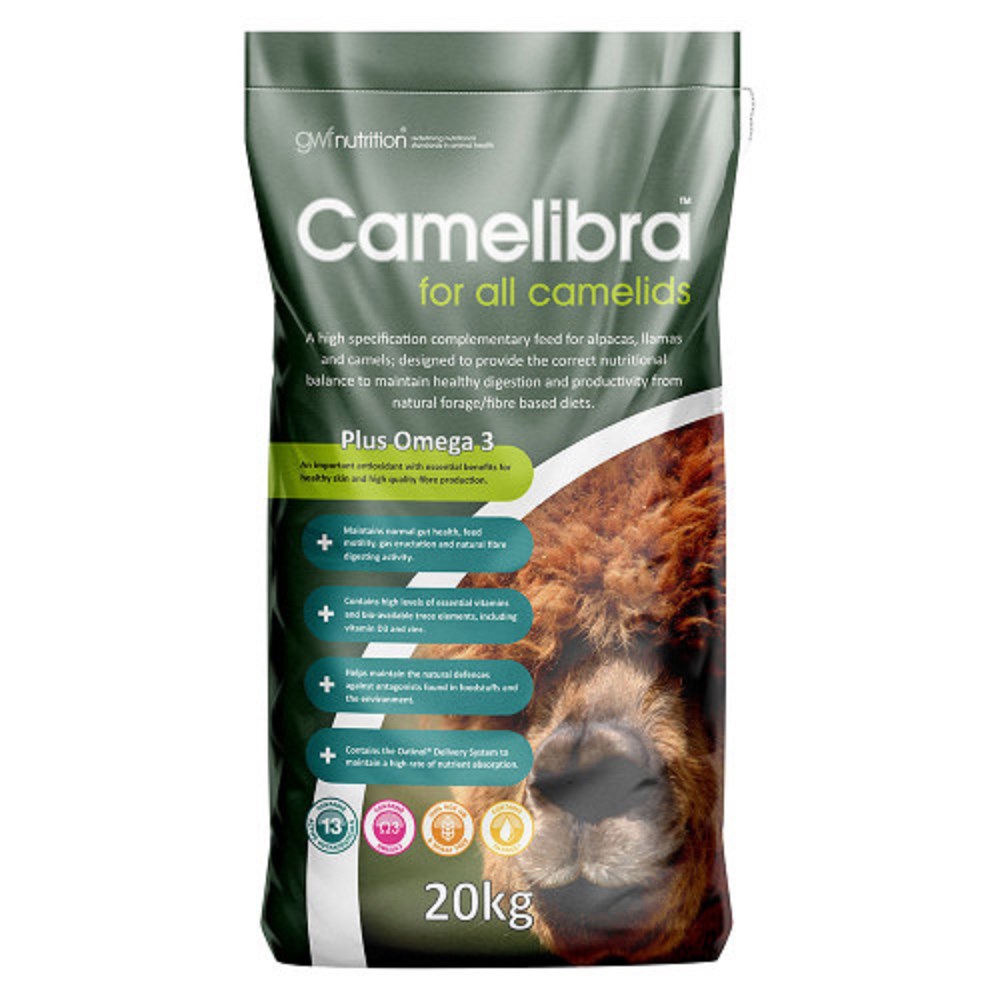
Other Feeds
Other Feeds

There are 3 products in this category
A complementary feedingstuff for feeding to Camelids only together with forage and clean water. DO NOT FEED TO SHEEP. Analytical constituents: Oil 3.5%, Protein 16%, Fibre 10.5%, Ash 7.6%, Ca 0.75%, Na 0.21%, Mg 0.21% Camelids are not true ruminants, but their stomach is made up of three compartments, and they do ruminate.This tasty mix combines digestible fibre and high quality protein with vitamins and minerals to offset deficiencies in grazing.
Dodson and Horrell Ostrich Grower is a complementary feed for growing ostrich and other ratites as appropriate. A palatable, easy-to-consume pellet for ease of feeding and to reduce wastage. Fully supplemented with vitamins and minerals to help ensure steady growth in young birds to minimise leg deformities yet permit good growth rates
Camelibra 20kg What Are the Benefits of Feeding Camelibra? Maintains normal gut health, feed motility, gas eructation and natural fibre digesting activity. Provides natural buffering and seaweed meal for foregut functioning and organic trace elements. Contains prebiotics to sustain beneficial fibre digesting bacteria. Contains high levels of essential vitamins and bio-available trace elements, including vitamins A, D3 & E, selenium, copper, manganese, calcium, phosphorus and magnesium. Provides 1020mg/kg of bio-available zinc, essential for high quality fibre and a healthy skin. Provides 'nanotechnology' products to maintain the natural defences against antagonists found in foodstuffs and the environment. Provides a unique combination of 13 active nutraceuticals. Contains the Oatinol® Delivery System™ to maintain a high rate of nutrient absorption. Manufactured to Universal Feed Assurance Scheme (UFAS) standards as palatable, easy-to-feed 2mm pellets. Camelibra should be fed to all alpacas, llamas and camels on a daily basis to complement a natural high fibre diet. For continued health, it is important for camelids to eat plenty of fibrous material and, as such, the consumption of concentrated hard feeds should always be kept to a minimum. Too much hard feed in the daily diet can cause compaction - a situation where heavier material sinks in the foregut and adversely affects the food's motility and normal gas eructation/regurgitation. For this reason, the daily feeding rate for Camelibra is designed to be very low at just 1g per kg live weight, or approximately 5% of their normal daily intake.



